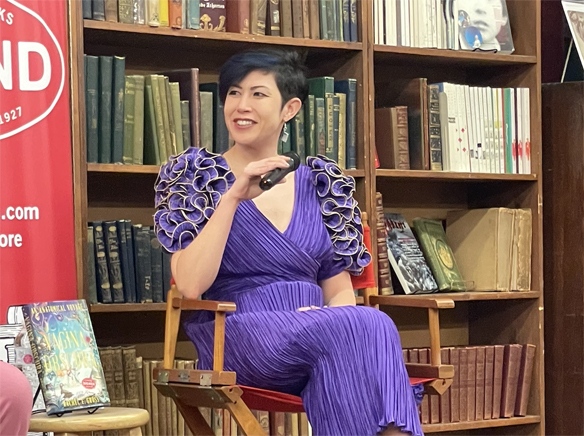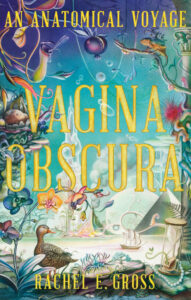
Despite all the advancements in medical science, it seems that there is still a lot of mystery surrounding key aspects of the female anatomy. To that end, science journalist Rachel E. Gross set out to uncover just how much was known and unknown about the female reproductive system.
What she found in her research on the knowledge and origins of medicine surrounding women’s bodies ranged from obvious and curious to downright shocking. What she eventually compiled into her book “Vagina Obscura: An Anatomical Voyage,” has raised some eyebrows, sparked conversations and caught the attention of major organizations and literary groups.

Most recently, the book is a finalist for the PEN America Literary Awards in science writing.
For Gross, who grew up in Rossmoor and graduated from Los Alamitos High, her venture into writing began as a child at Rossmoor Elementary School, where she first found a love of reading and writing, beginning with fantasy books. The science ran in her blood as she is the daughter of a physicist father and medical doctor mother. And as a grown woman, experiencing doctor visits that seemed puzzlingly uncertain of female systems, Gross wondered just how much was known about women.
The goal was “to show the roots of this profound knowledge gap,” Gross said in a recent phone interview from her home in Brooklyn, New York.
At the time that Gross set her sights on the book, she had been working as the science editor for Smithsonian Magazine, where she had already helped expand the magazine’s coverage of women’s medicine and women in science. It became clear how little was actually known about female anatomy, even in the medical field.
Much of the gap came from marginalization of women, minorities and gender minorities such as LGBT people and scientists. In a Q&A with Ms. Magazine, Gross said that she “wanted to spotlight the factors leading to why these particular areas of the human body were misunderstood and understudied.”
“It was not a coincidence that we didn’t know a lot about women’s bodies,” she said.
The book weaves medicine, with social stigmas and historical background in how much or little has been studied when it came to women’s reproductive anatomy. It notes that it wasn’t until 1993 that a federal mandate required women and minorities to be included in clinical trials. It wasn’t until 2009 that bioengineer Linda Griffith opened the first lab to study endometriosis, a common, yet incredibly misunderstood disease. It wasn’t until 2014 that the National Institutes of Health opened a branch to study women’s reproductive systems.
“It’s hard writing a book about the things we don’t know,” Gross said.
Much of what was known dated back to work done by doctor and slaveholder James Marion Sims, who is known as the “Father of Modern Gynecology.” Sims did much of his research on and with the help of enslaved women. And Gross points out that subsequent research also came at the expense of vulnerable populations.
“Being aware that gynecology suffers from this history of ethical breeches should make scientists more cautious and thoughtful when they design experiments today,” Gross stated in her Ms. Magazine Q&A.
The traction her book has gotten offers some hope for Gross that more research will be done. She said there is still a long way to go in understanding and admits that there is still some squeamishness and taboos surrounding the subject in general.
Prior to the book’s finalist selection with the PEN awards, it was a New York Times Editors’ Choice selection and one of three finalists for the Andrew Carnegie Medals for Excellence in Fiction and Nonfiction. It was also tabbed by Science Friday as one of the best science books to read for summer of 2022.
After high school, Gross studied English Literature at UC Berkeley and went on to earn a master’s in Science Journalism from the Medill School of Journalism. She was also a Knight Science Journalism Fellow at MIT, where she studied reproductive biology, gender, and history of science.
When not working Gross likes to run (she competed in cross-country and track at Los Al High), bike and she said she enjoys performing in pun competitions. She said she also likes to roller skate and roller disco and loves to do karaoke way too seriously. And she considers herself a failure at cat fostering, since she ended up adopting two that are now her forever cats.

As for her home in California, she said she misses friends and family, taking walks in Gum Grove Park and the abundance of avocados. “Vagina Obscura” is set to be released in paperback on March 7, and Gross will be speaking at the LA Times Book Festival, April 22-23 at University of Southern California.
The PEN American Literary Awards, where her book is one of five finalists, are scheduled for tonight at 5 p.m. Pacific time, at the Town Hall in New York City. For more on the event, visit thetownhall.org. For more on Gross, visit rachelegross.com or follow her on Instagram at @gross_out or on twitter @rachelegross.



